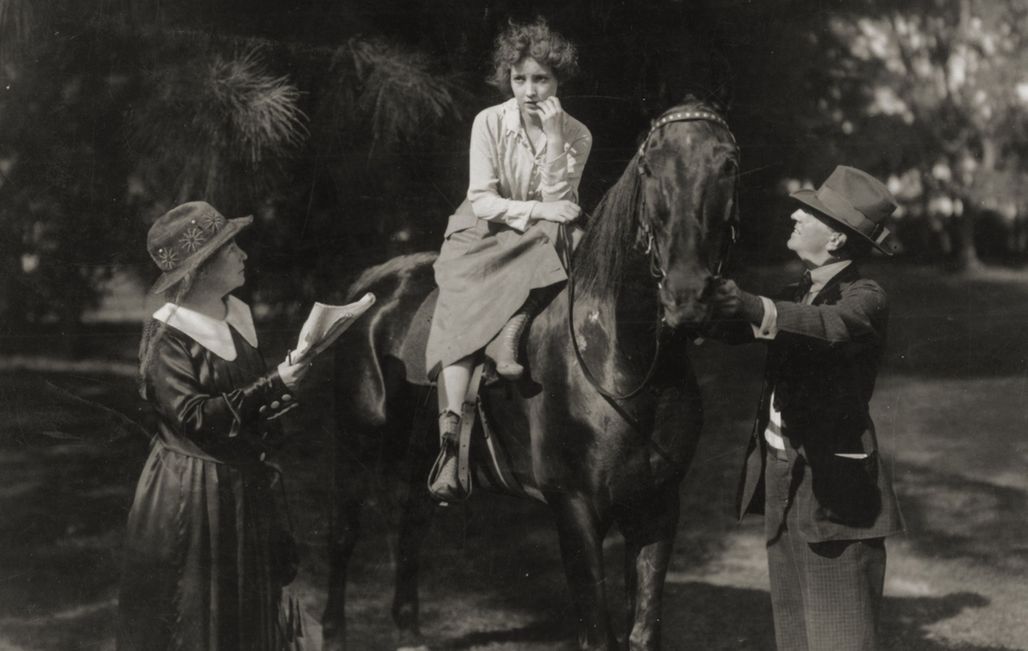
Be Natural: the untold story of Alice Guy-Blaché, in the footsteps of a cinema pioneer

Alice Guy-Blaché, whose name was rapidly blanked out by Hollywood and forgotten in the history of world cinema, is the subject of the first documentary by the American director Pamela B. Green. The visionary Guy-Blaché was the first woman to step behind the camera, in 1896. The film, half detective story, half biopic, is presented in Cannes Classics.
What was the process involved in making this documentary ?
It was a very long one. The hardest part was funding and finding new material through extensive detective work and research. Another difficult part was locating her films. We embarked on a worldwide search for new documents, vintage TV and radio interviews with Alice, so she herself could tell her story. Identifying her previously unknown films was perhaps one of the most difficult and costly parts of making this feature documentary because of the often decrepit state of these 100-year-old films and their locations, which are literally spread out across the globe.
The documentary features several cinematic figures such as Jodie Foster, AgnèsVarda, Anne Fontaine… How did you persuade them to take part in it ?
Our first supporter was Robert Redford. Then Jodie Foster. Catherine Hardwicke was our first interview. These names helped us move the story forward and get access to other interviews as well as to funding sources. I chose to interview the best in the business who could relate to Alice and her many professional roles as director, producer, editor, writer, head of production, and studio owner. I wanted people to relate since the story is a century old. I discovered that we aren't doing anything new in the film business. We have just taken what Alice and her peers did at the time – telling entertaining and compelling stories – but with new tools.
Can you explain where the title "Be Natural" comes from ?
Alice Guy-Blaché had a sign in the studio she owned and ran – Solax – in Fort Lee, New Jersey, instructing her actors to avoid the exaggerated gestures of the era. It said: "Be Natural". Watching her films and recognizing how powerfully and intimately they embodied such naturalism, it was a no-brainer to title the film "Be Natural".
What do you think of women’s position in the film industry?
I think things have improved, but not enough. Sundance has been a great platform for women but we need more opportunities for women, more opportunities to fund, direct, DP, produce and edit films… so that films by women can be made and then celebrated at festivals and enjoyed by the public at large. Change is happening, but we need more opportunities.
Telling Alice's story, I think, will inspire a new generation to go out and do the work. If Alice was there doing it, you can too. Never be discouraged and never give up.
According to you, what would the film industry look like today if Alice Guy-Blaché’s work hadn’t been forgotten?
I think the landscape would be different. If Alice and many other female filmmakers were known throughout the years we would not have to right the severe imbalance of male to female makers or even make a distinction between them. Alice is now here as an example. Let's keep finding more, and let's keep creating new and diverse stories, for the world to see.
You are attending the Festival for the first time as a director for a film you made about another director. What does it mean to you?
It's a very moving and exciting experience. I have been to Cannes before but said I wouldn't come back unless I had a film that had meaning. Honouring Alice Guy-Blaché at Cannes through the film is a dream come true. She started in France and her getting her due here couldn't be more appropriate.


